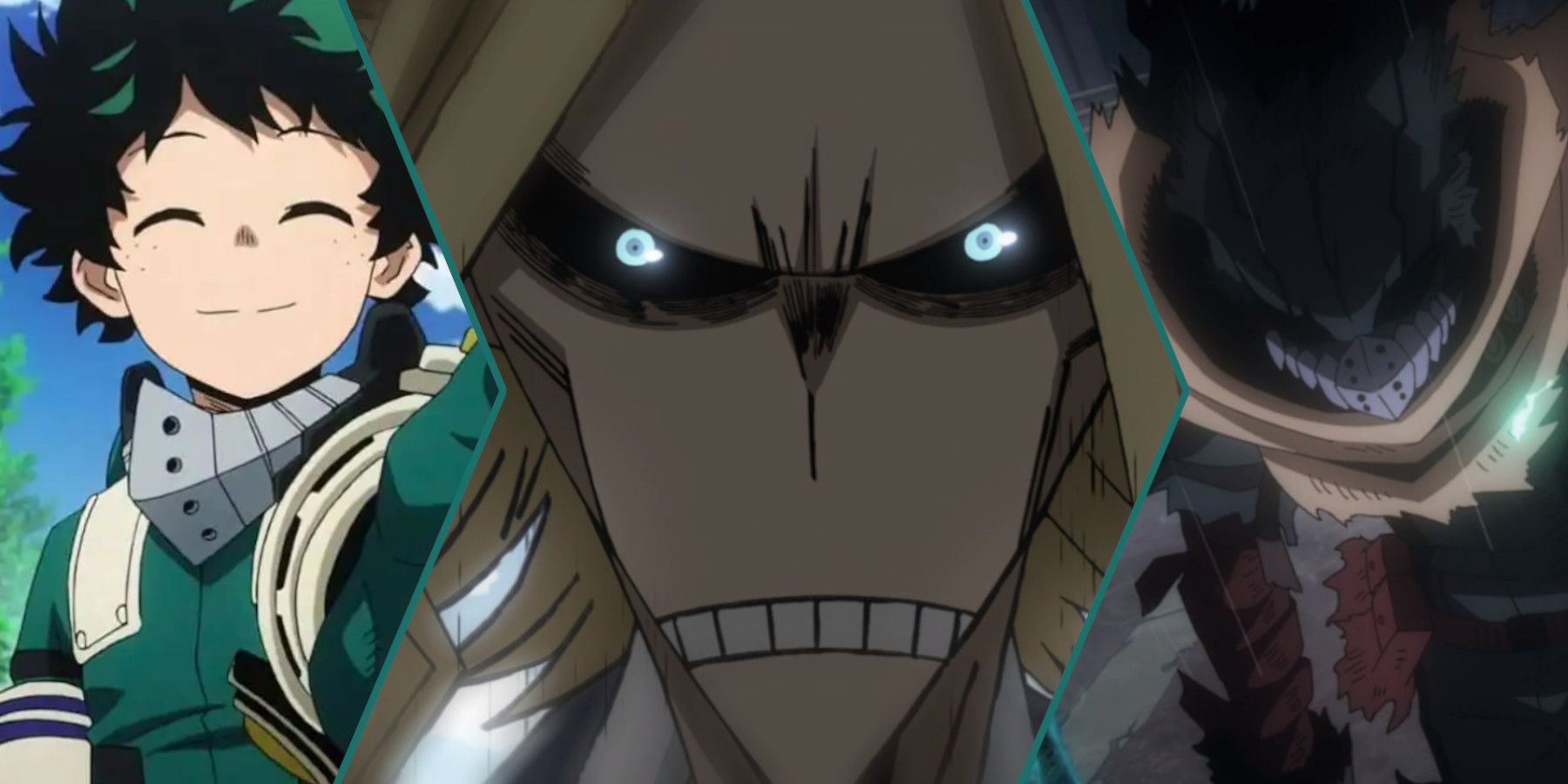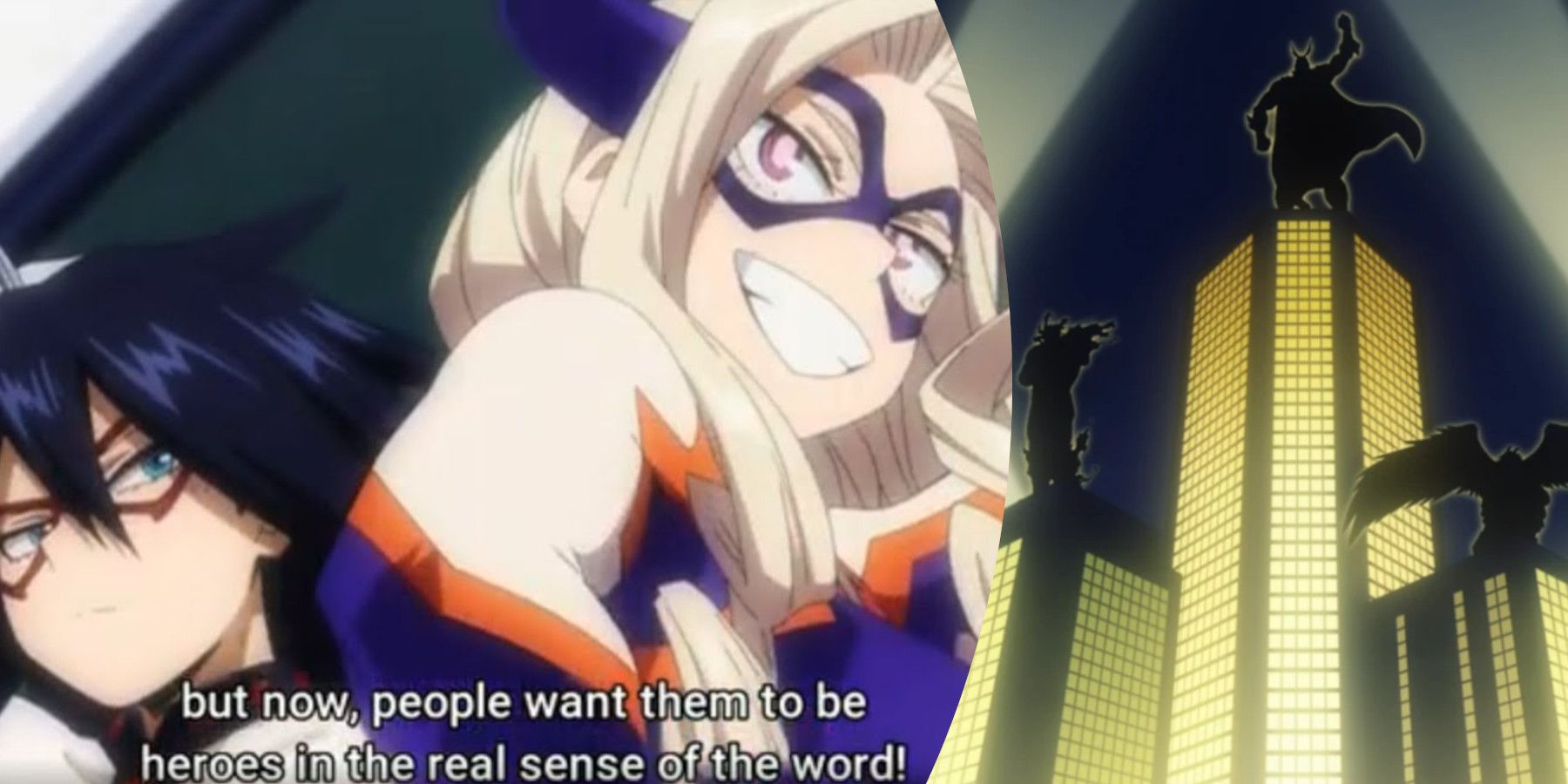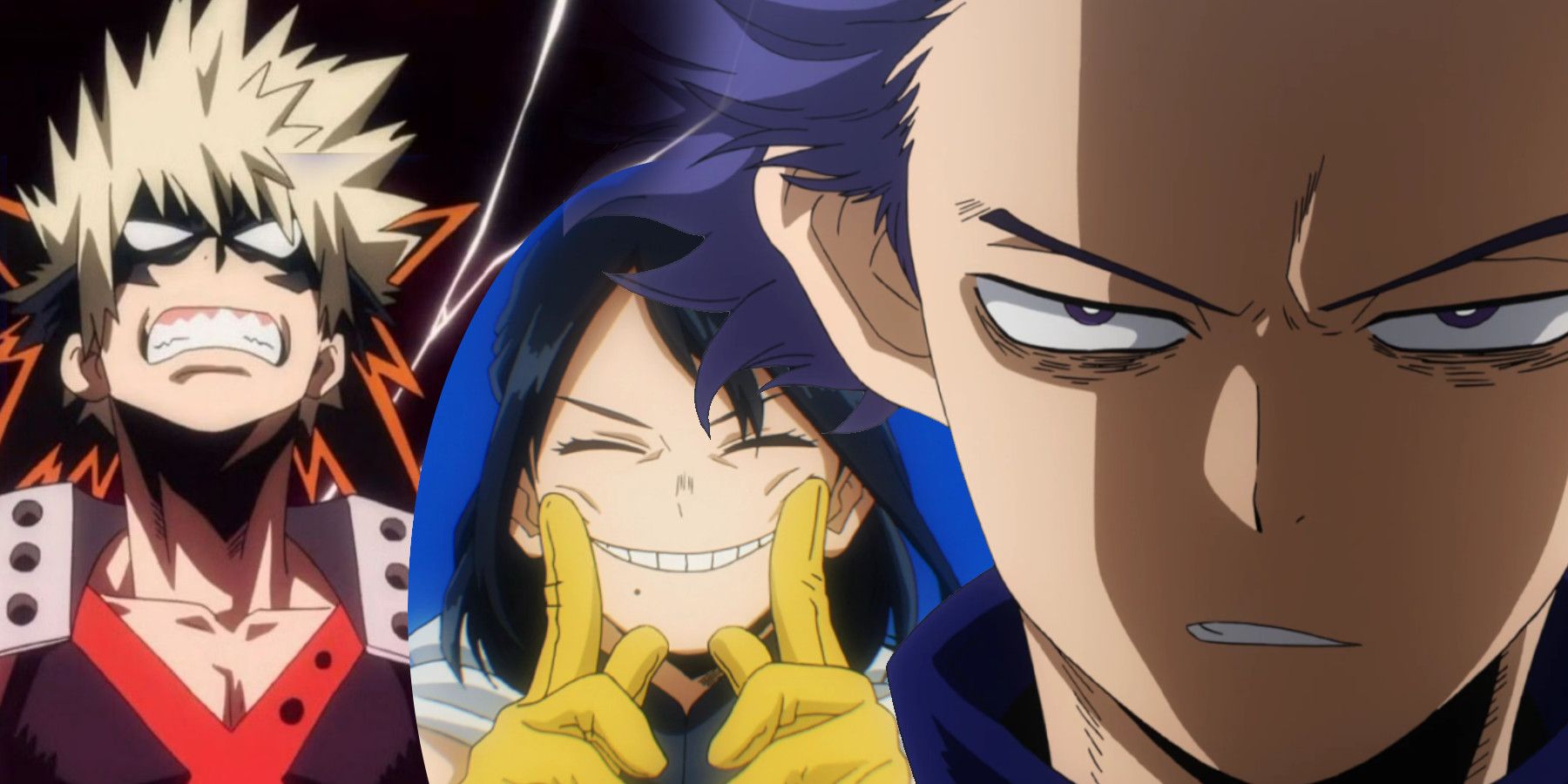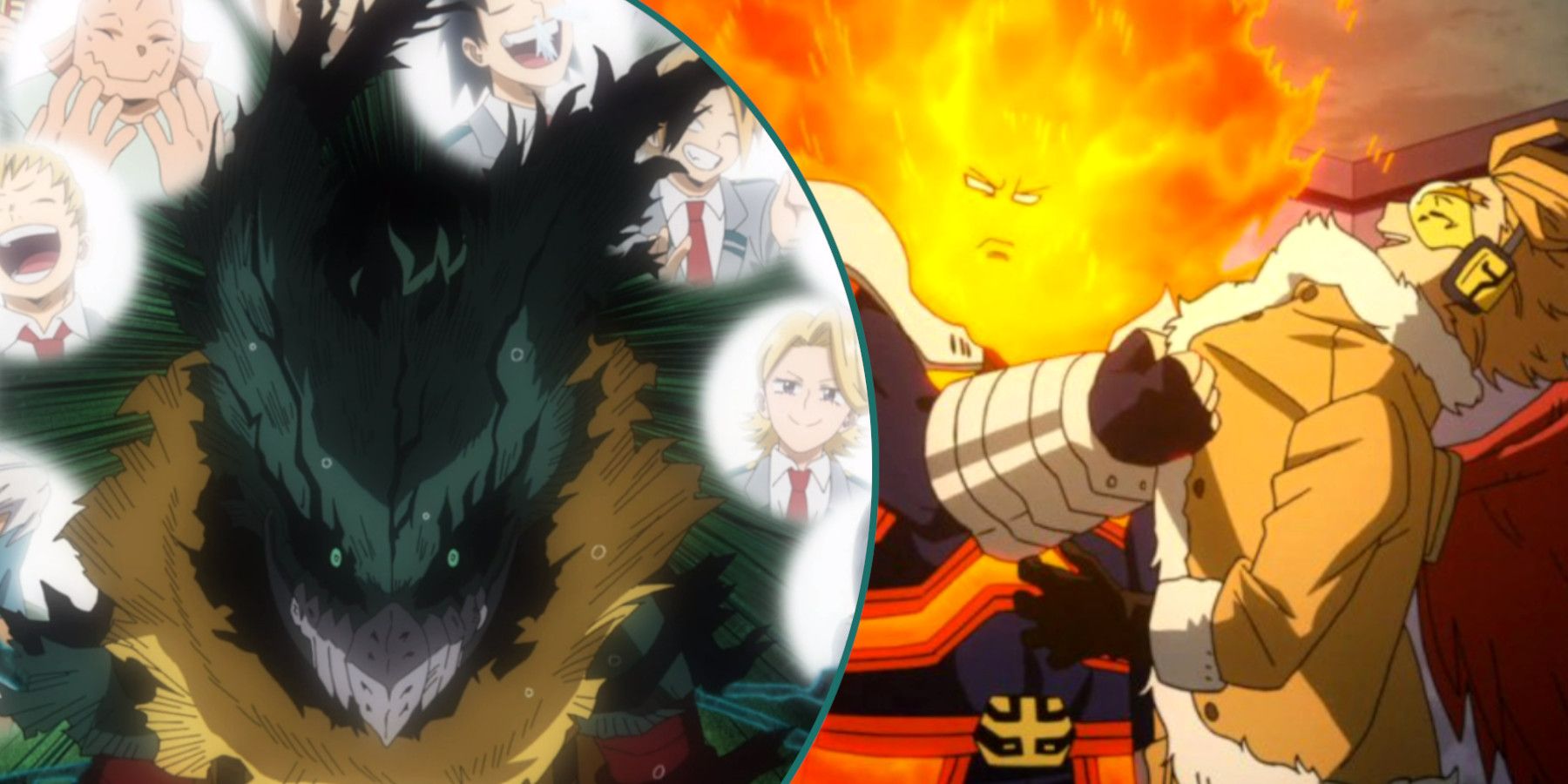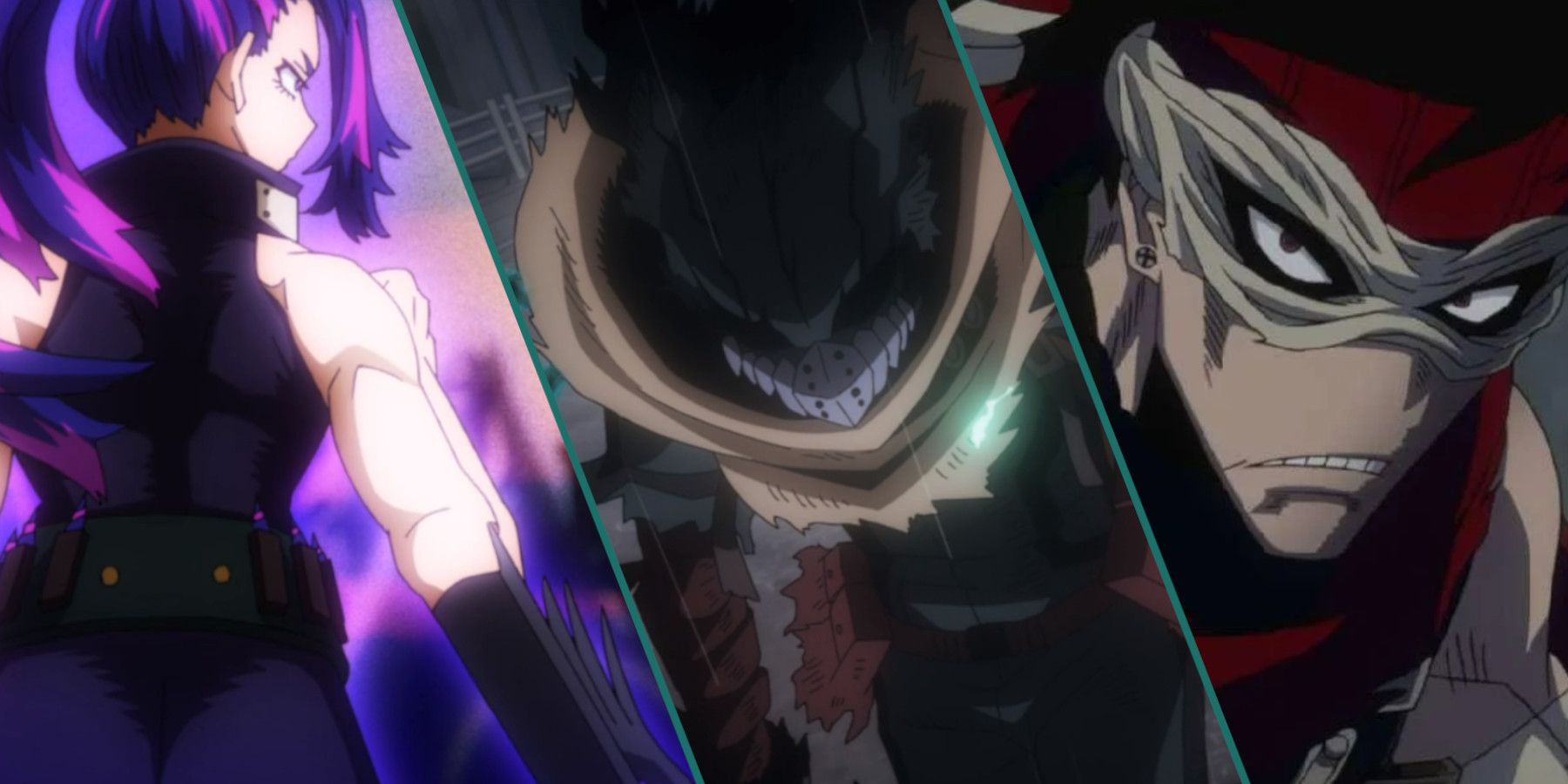The following content contains spoilers from My Hero Academia, Season 6, episode 22, currently streaming on Crunchyroll. There is a lot of discussion around the definition of a hero (and villain) as the Black Hero arc gets underway, and the boundaries that separate good from evil begin deteriorating drastically. While this debate has essentially been ongoing from Stain's days in the spotlight, Dabi has reinforced the questionable concept, which far too many people have taken to heart.
Technically speaking, a Hero is someone who has trained long enough to qualify for public Quirk use, and who only ever uses their superpowers to protect and defend, while a Villain is basically the opposite. However, everybody knows the world is not black and white and that not everything is as it seems. With such high expectations placed upon them, can anyone truly qualify for the Hero status and unequivocally declare that personal gain hasn't fueled their actions?
The Hero Society Hierarchy
The recently retired Death Arms justifies his desertion by declaring:
"It looks like I wasn't a Hero... I was just human"
This statement speaks volumes of the superiority complex that Pro-Heroes seem to inherently possess, being the celebrated saviors of the world and all. Why? Quirks aren't that special, 80% of the population have superpowers yet only a select few are allowed to wield them, according to government regulations. So then it must boil down to education; Pro-Heroes need to undergo rigorous training before qualifying for this honorable position, which makes them better than the average civilian, right? Now transfer those same sentiments over to real-world law enforcement, then situations like George Floyd's begin to crop up.
Izuku doesn't have a mean bone in his body, up until now; the claws have come out as the stress levels intensify, and a gray hue blurs his vision while he clings to the concept of right and wrong. Deku arguably shares this same superiority complex as the rest and is attempting to take charge of the situation, even though others outrank him, whereas his fellow classmates feasibly have as much right to get involved if they so wish. Who died and made Deku boss? Bakugo, who doesn't have the best track record, is the only one to call Izuku out for his selfishness; being a Hero doesn't equate to making the biggest sacrifices, particularly if it's at their friends' expense (yes, emotional damage also counts!)
Lady Nagant implies that Deku has been brainwashed by the Hero Society and therefore cannot see the truth right before his eyes; however, the youngster has shown compassion for Villians on many occasions, proving he can see past the petty labels. Deku does his best to adopt the lifestyle of "a superhero who helps people in trouble everywhere;" a mentality that has spurred him on even before his Hero days, when he was Quirkless and "useless," and continues to shine through to this day. He has made it his mission to discover the root of his opponents' evil, in the hopes that a well-executed pep talk might lead to retribution. This unwavering, selfless hope is what sets Deku apart from the rest as a true Hero, although the darkness is beginning to encroach at an alarming rate.
Quirks: The Deciding Factors
For the most part, a Heroes' path is apparently predetermined according to their Quirk, which manifests from the age of four, setting them up for great success in life, or total failure. The nature of one's Quirk dictates one's status, and it takes a great deal of determination to change people's snap judgments once they have solidified. Some lucky individuals are born with Quirks that are perfect for Hero work, like Nana, Eraser Head, Kirishima, Mirko, and more; whereas others are treated as Villains from the get-go, through no fault of their own, compelling many to live a life of hateful vengeance as a result. As All For One eloquently puts it:
"People who experience setbacks in life are called villains... Those who don't fit in are ostracised. There are no exceptions. Democracy or socialism, the roots are the same... It's a principle of living in groups."
Practically all the My Hero Academia Villains has suffered at the hand of society in the past, and even some Heroes have faced harsh judgments because of their Quirk, such as Hitoshi Shinso, Romero Fujimi, Seiji Shishikura, among others. And although Bakugo is a rather unlikable fellow, his powerful Quirk has ensured his popularity from a young age; one could say that this admiration kept him from prioritizing the destructive nature of his volatile powers, which could easily get used for evil (like the stark difference between Endeavor and Dabi, who essentially have the same power.)
Hero, Who?
Endeavor is the audience's first sneak-peak into the underbelly of Hero Society, as the top dog and current #1 Pro-Hero became so consumed with the concept of power that he ruined his family to see his dreams come true, creating the ultimate supervillains as a result. Moreover, the ultimate good guys, One For All's Past Users, seemed perfectly willing to go against the Hero Code and murder Shigaraki, making All For One's defeat much easier, and only accept the challenge of capturing the League of Villians' leader alive after much convincing on Deku's part.
On the flip side, although all Heroes have been getting a bad rap since the Paranormal Liberation War, the moment Deku starts looking a bit disheveled and stops caring about hiding his powers from the people he is protecting, they promptly begin gossiping in the streets about his potential Villaneous connections. His recent actions don't help his cause, as Deku's usual sweet nature is becoming rather rough around the edges as he prioritizes his mission over people's feelings, hurting loved ones in the process.
"The Pot Calling the Kettle Black"
The Hero Public Safety Commission is essentially the backbone of the Hero Society, and yet, they are just as underhanded and dirty as the Villains (who should be) behind bars. They groom young, gullible wannabe heroes, turning them into ruthless killing machines while raising their status in the public eye as admirable role models. And while the League of Villains isn't exactly a positive influence on the community, there is no denying the love shared between certain members (no, not Dabi!), who consider this bunch of ruffians to be family.
Heroes who are no longer receiving praise for their work simply walk away from the cause, leaving the world in disarray as they lick their wounded egos. A real Hero would stick around and fight for what's right, instead of throwing in the towel the moment celebrations cease. Even the Hero Killer: Stain is essentially fighting a worthy cause, as he is trying to eradicate the deception and lies that overwhelm the Hero Society, although his schemes are tainted in blood. All For One is the only one shown to be inherently evil but other than that, the terms Hero and Villain are starting to be inconsequential and meaningless, mere tools to distinguish the teams in a neverending brutal battle.

